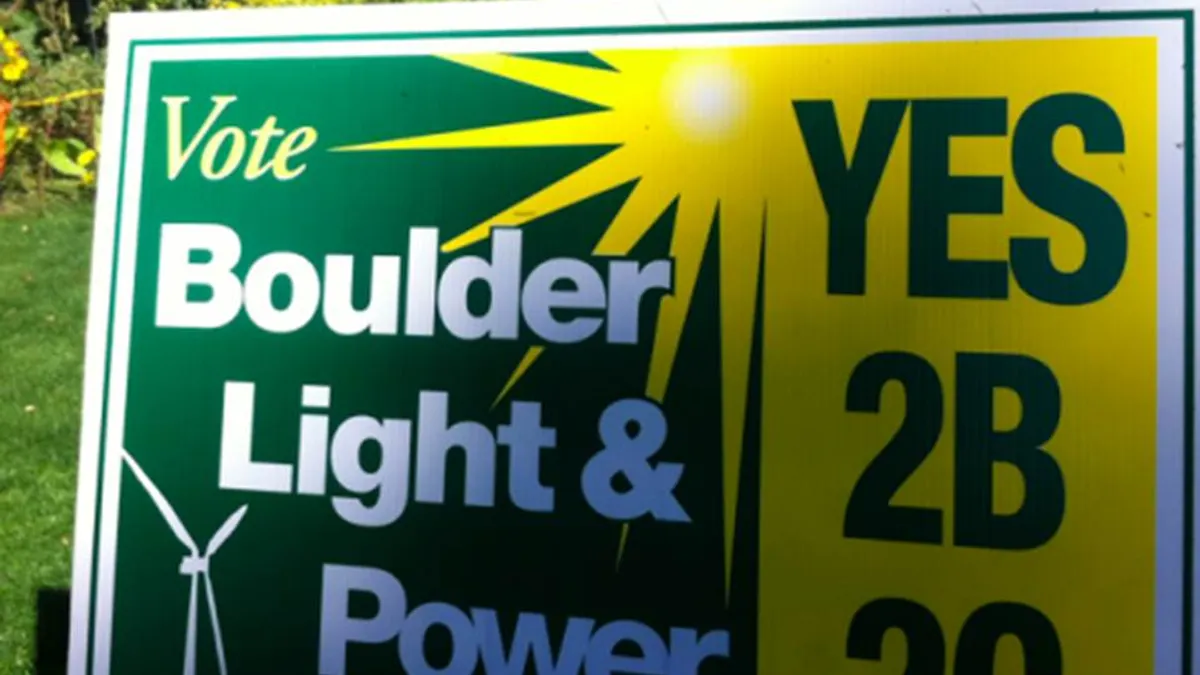Dive Brief:
- The City of Boulder asked Colorado regulators for authority to take over Xcel Energy's distribution assets, an important step in the process towards creating a cleaner, renewables-focused municipal utility.
- In its 300-plus page filing with the Colorado Public Utilities Commission, the city made its case that it can supply electricity as reliably as the incumbent utility – a requirement for the process to move forward.
- Boulder outlined strategies to provide a more resilient grid and lower prices, including integrating large quantities of distributed and utility-scale renewable energy.
Dive Insight:
The City of Boulder has laid out its plan to become “the energy utility of the next century,” explaining to regulators how it wants to create a more flexible grid that provides residents with more control over cleaner source of energy.
But the shift into a municipal utility, including taking over Xcel's distribution network, will be a gradual process and the incumbent utility appears willing to help. Boulder's application indicates its approach is a transitional one, and that the city would continue to be a customer of Xcel Energy for a limited period of time.
“By gradually reducing its demand for power from Xcel in coordination with Xcel’s increasing need for electric resources, the city helps facilitate a smooth transition for all customers,” the city said in a statement. “This will ensure that other Xcel customers across the region are not impacted negatively. The resources released by Boulder could instead provide power to other customers, avoiding the expense of developing new energy supplies.”
But for those wary the transitional approach could alow integration of more clean power, the city added that even with the measured strategy it will be well-positioned to increase renewable sources of energy and decrease emissions much more quickly than it would by remaining a retail customer of Xcel.
“People have been asking us how we plan to operate an electric system to ensure excellent service and reliability. We are excited that the Boulder community and other interested parties can now see the engineering details of our plan,” said Heather Bailey, executive director of Energy Strategy and Electric Utility Development.
The city is seeking only the facilities necessary to serve Boulder customers, and is not seeking to transfer any generation or the local transmission loop that serves the city. Energy goals set by the community call for more reliable and low-cost energy from cleaner sources, like wind, solar and hydro, with customers having more say in decisions related to rates, investments, customer programs and supply.
“The filing shows that non-city customers will not be harmed by the departure of Boulder from the Xcel system. It also supports the Boulder community’s commitment to a cleaner power supply, prioritizes investments in resilience and reliability, provides access to more local generation, and supports economic vitality by creating a market for local and national innovative energy services,” said Bailey.














